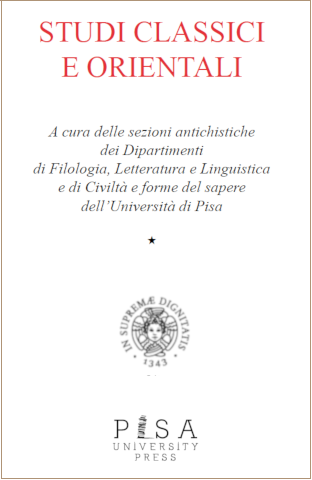Note etimologiche su Τασκοδρουγῖται, Ascodrugytae, Ascodrobi, Πασσαλορυγχῖται, Ἀρτοτυρῖται
Parole chiave:
Τασκοδρουγῖται, Ἀρτοτυρῖτα, Heresies, Galatian, EtymologyAbstract
Late Antiquity Galatia is apparently home to heretical groups such as Ascodrugitae/Τασκοδρουγῖται, Artotyrites etc., which are mentioned by Hieronymus (Comm. in ep. ad al. 2.3 praef.) and others (Epiphanius, Panarion; Philastrius, haereseon liber; Augustine; Theodoret etc.). Information about these heresies is scarce and confused, nd what we actually seem to know is barely their names. The focus of this paper is therefore on the etymological analysis of these forms, which appear to be onomastic ithematic compounds, a lexical structure that ABSTRACTS 329has a long history within Indo-European languages. The analysis will include a discussion of the linguistic trata these names may plausibly be ascribed to (i.e., Greek, Galatian/Celtic, Anatolian etc.) and the connection with (possibly Galatian) lexical items such as, e.g., ροῦγγος (Epiph. 48.14; cf. Late Latin drungus ‘globus hostium’, Old Irish drong‘band’ etc.). We will thus consider the case for keeping apart historical aspects – i.e., oncerning the rather uncertain and heterogeneous religious features of these alleged heresies, as well as their very existence – and the linguistic datum. The ypothesis finally advanced is that at the origin of at least one of these names is a long-time standing tradition of Namengebung related to social groupings of various ind and, for us, of ill-defined status, not necessarily religious in nature.


